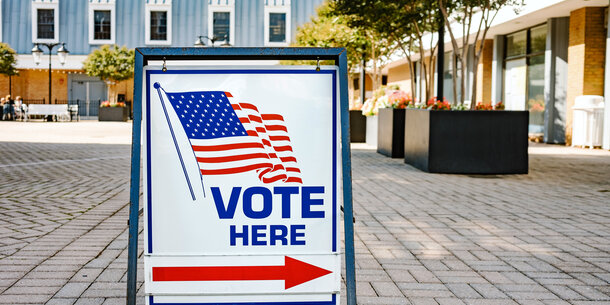On Thursday, Florida Gov. Ron DeSantis signed into law S.B. 90, an omnibus voter suppression bill that will make it harder for Floridians to vote.
It’s worth taking a step back to note that after last year’s general elections, Florida’s officials touted their election process as a great success. Nevertheless, Florida’s governor and state lawmakers advanced S.B. 90 under the pretext of addressing unfounded and unspecified concerns about election integrity.
The 48-page law makes a slew of changes to Florida elections, including making voter registration more difficult, modifying rules for observers in ways that could disrupt election administration, and restricting the ability to provide snacks and water to voters waiting in line.
Most prominently, it takes aim at mail voting. For example, it requires voters to provide a state ID number or the last four digits of a social security number to obtain a mail ballot, providing no alternative if a voter has neither identification number. And it shortens the time period during which a voter can remain on the state’s vote-by-mail list (which entitles them to receive a mail ballot automatically).
S.B. 90 also makes it harder for voters to access secure ballot drop boxes. It requires drop boxes to be located either at a permanent county voting office or at an early voting location accessible only during early voting hours. Regardless of location, such boxes must be staffed by a county employee — which is likely to further restrict the hours of availability. Local election officials will be subject to a $25,000 fine if they make drop boxes available beyond the strict limits imposed by the bill.
Additionally, S.B. 90 makes it more difficult for voters to receive assistance with the request and return of mail ballots in a number of ways, including by criminalizing any person who possesses two or more mail ballots other than the person’s own ballot and an immediate family member’s. And the law prohibits local and state officials from sending a mail ballot to voters who did not request one.
S.B. 90 also makes it harder for state and local officials to solve problems and protect voters. It prohibits local and state election officials from relying on outside funding for election-related expenses, even during emergencies. Last year, for example, nonpartisan philanthropic grants were essential to election officials’ ability to conduct safe elections during the pandemic. And it also limits the ability of state and county agencies to settle lawsuits related to elections without interference by the legislature and attorney general.
But not all hope is lost. Many of the restrictive provisions in the law would be fixed, as they pertain to federal elections, by the For the People Act — the federal democracy reform bill that has already passed the House.
For example, if enacted, the For the People Act would:
- Require that all voters receive absentee ballot applications and allow voters to request that their application be applicable to all future federal elections, making reapplication unnecessary.
- Allow voters to vote by mail without a voter ID number or other onerous ID requirements.
- Prohibit states from placing limits on how many absentee ballots a person can return on behalf of others.
- Ensure that voters can drop off ballots in drop boxes at locations and times that actually work for them.
Notably, the For the People Act would also restore voting rights to everyone living in the community, regardless of past convictions — rectifying the unjust pay-to-vote system that Florida imposed in 2019.
Florida is not the first state to pass restrictive voting legislation this session (just take a look at Georgia and Iowa), and it may not be the last (all eyes are now on Texas). As states stubbornly advance their voter suppression agendas, the urgent need for the Senate to pass the For the People Act could not be clearer.



